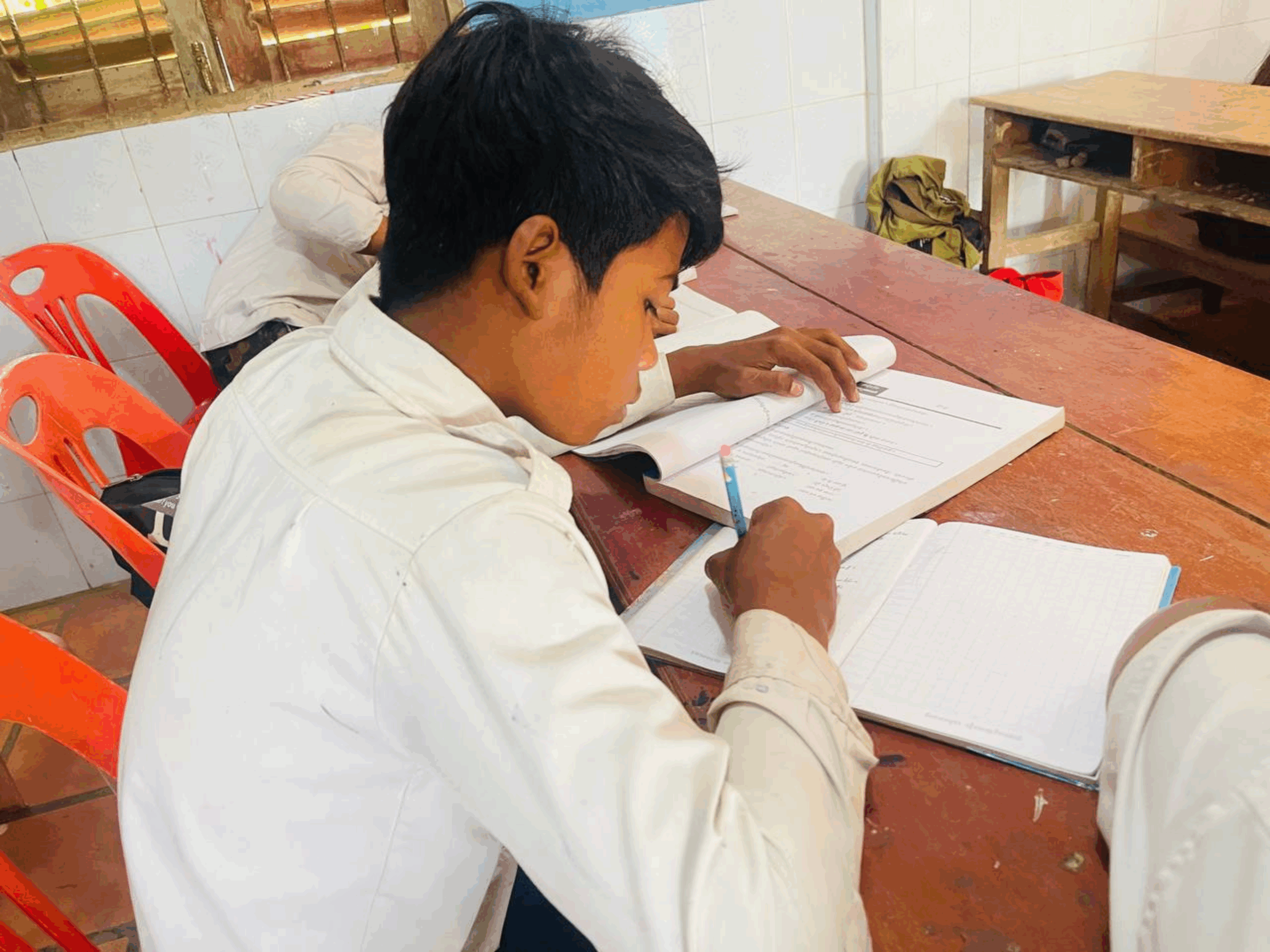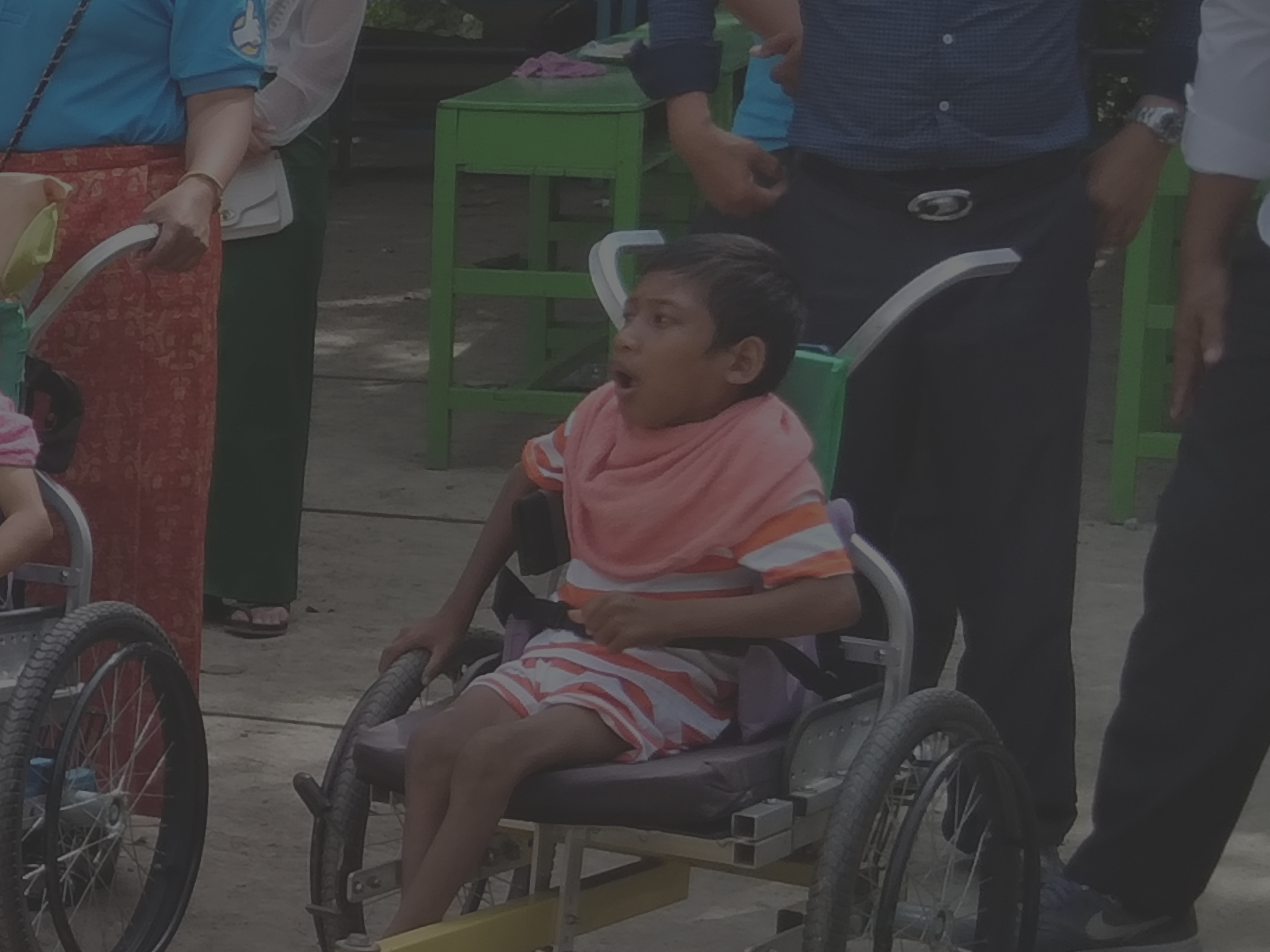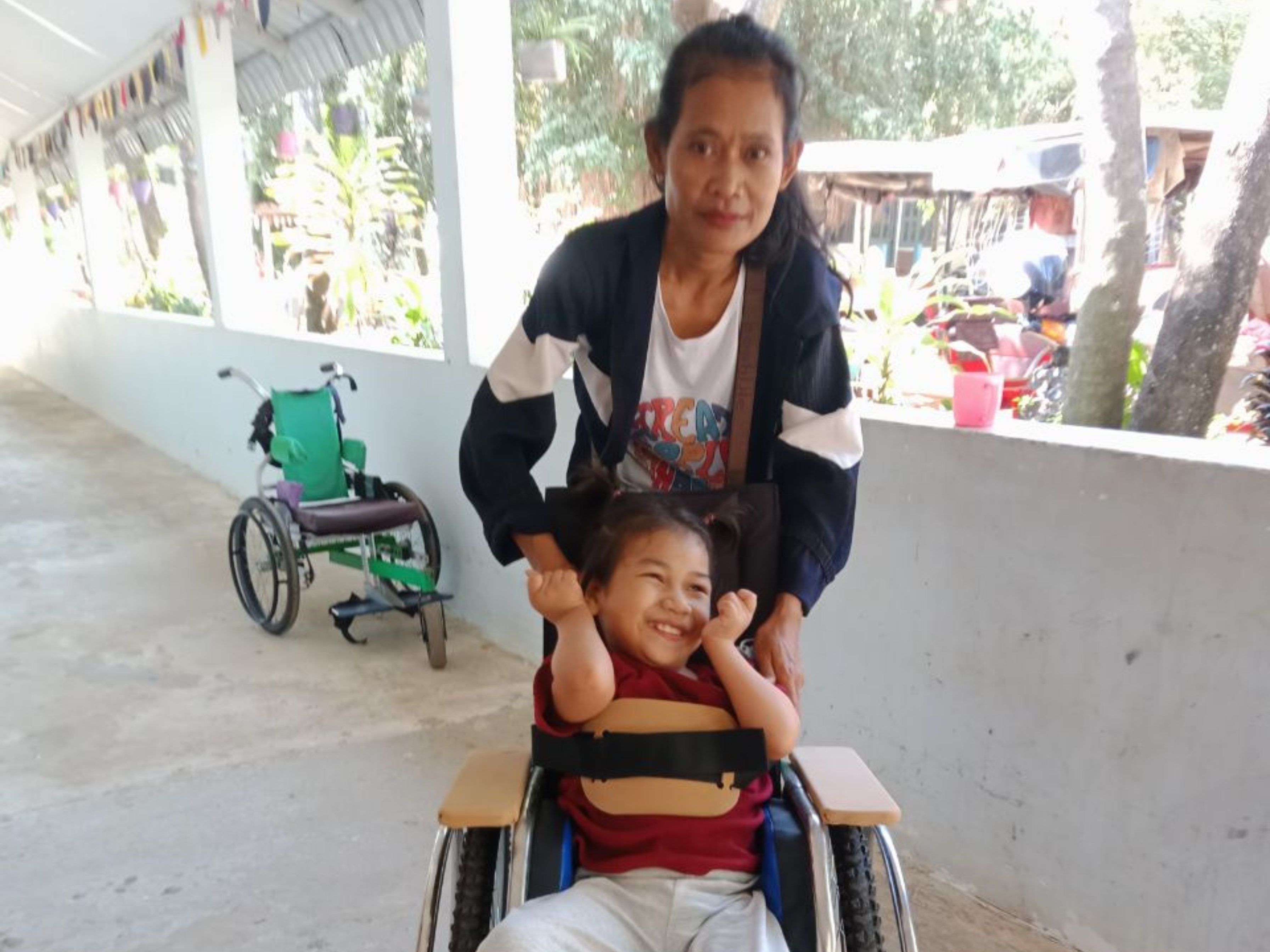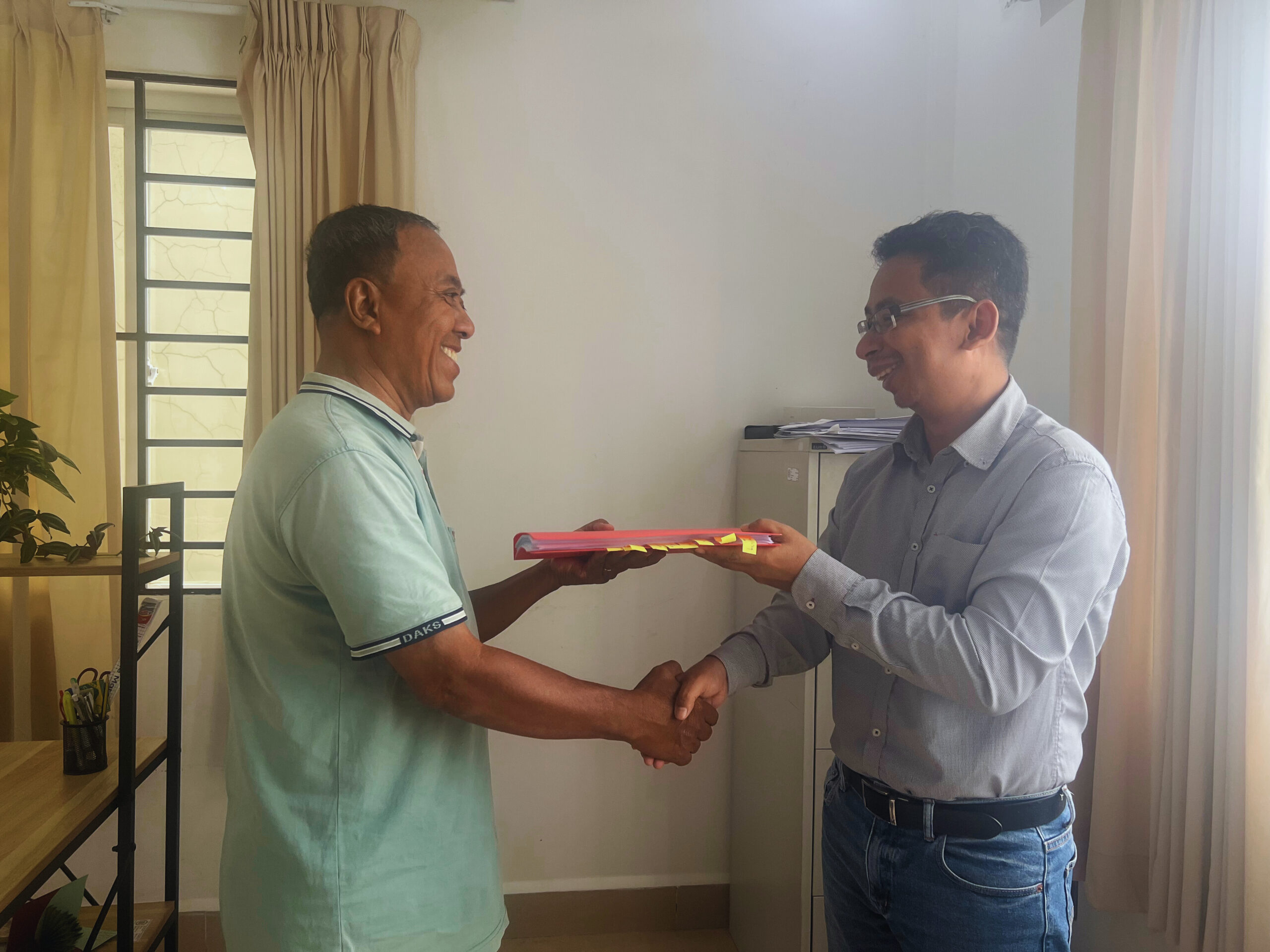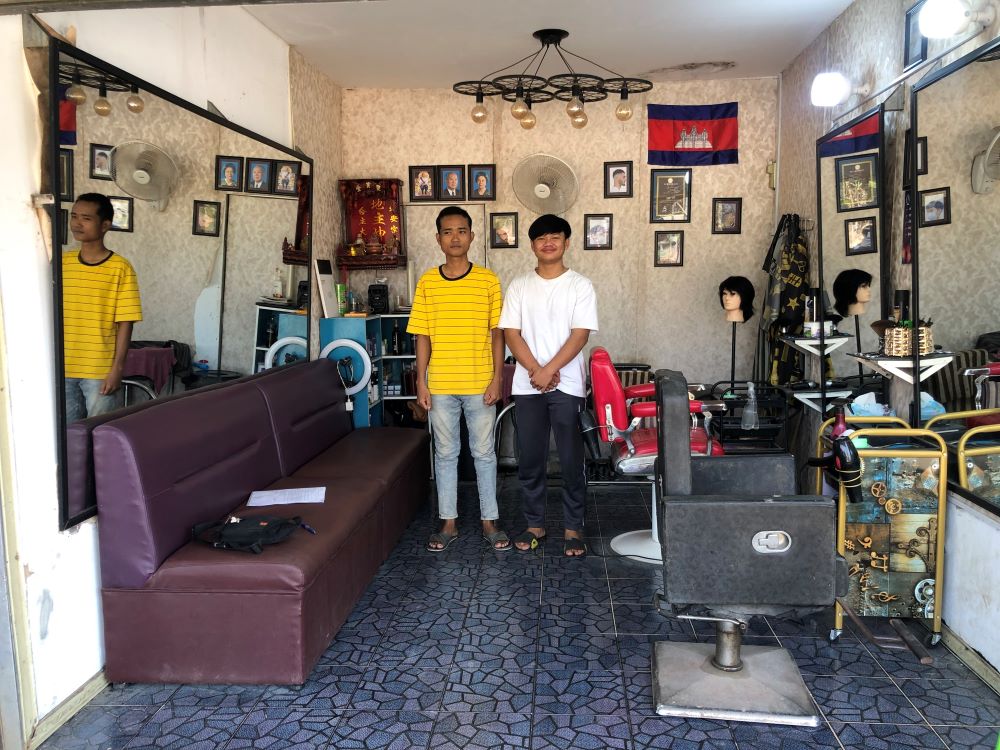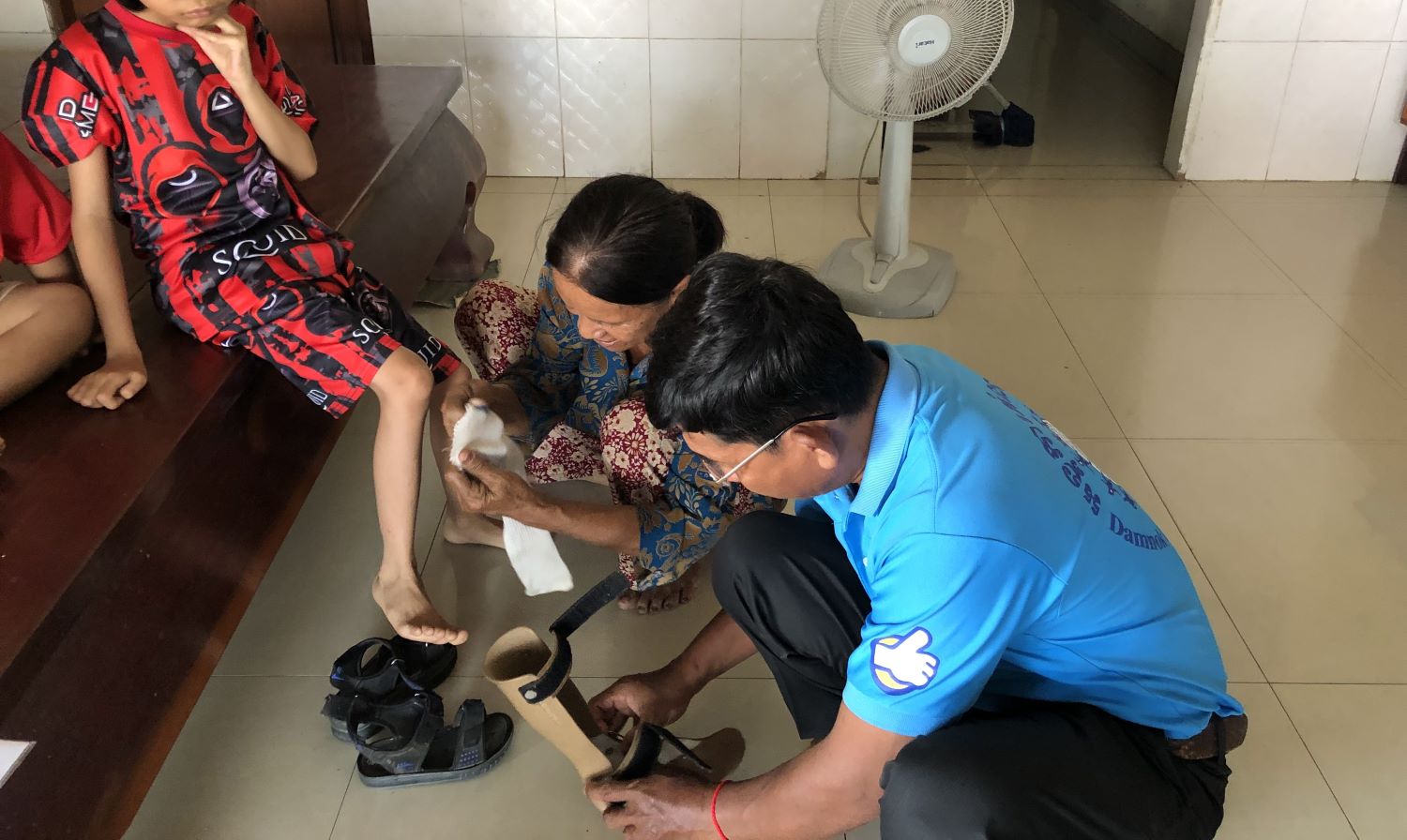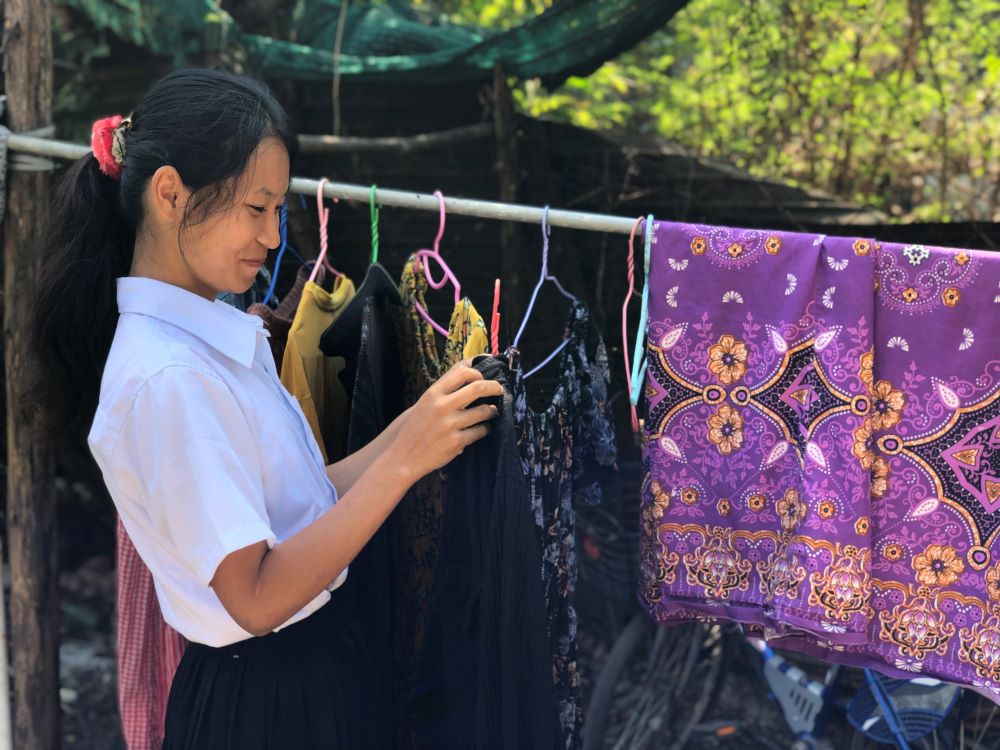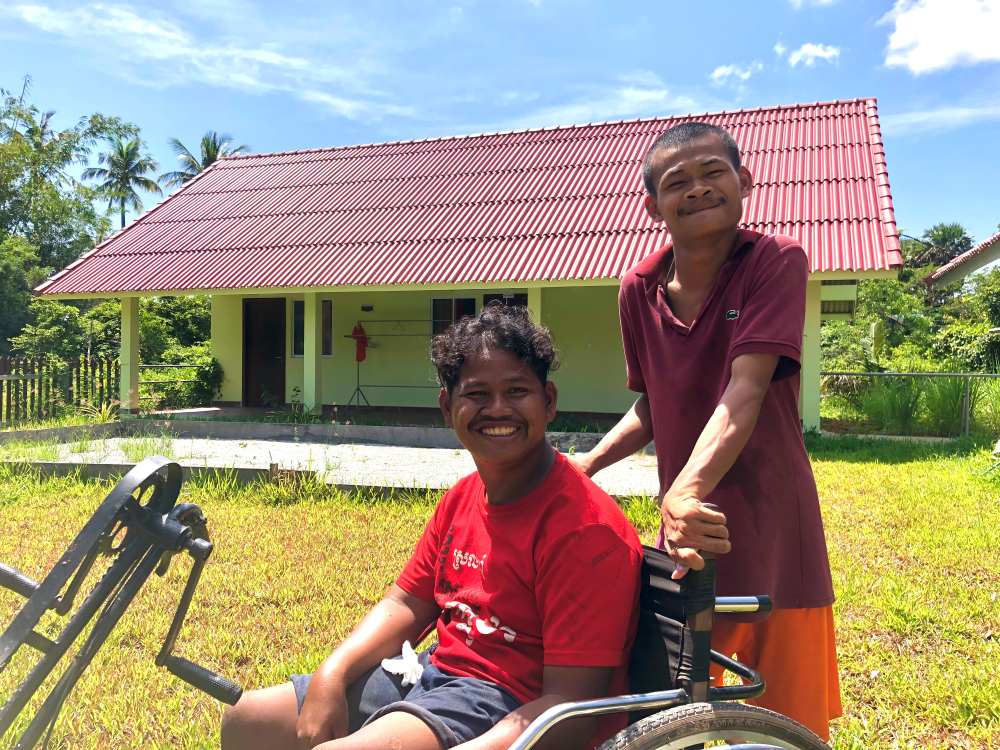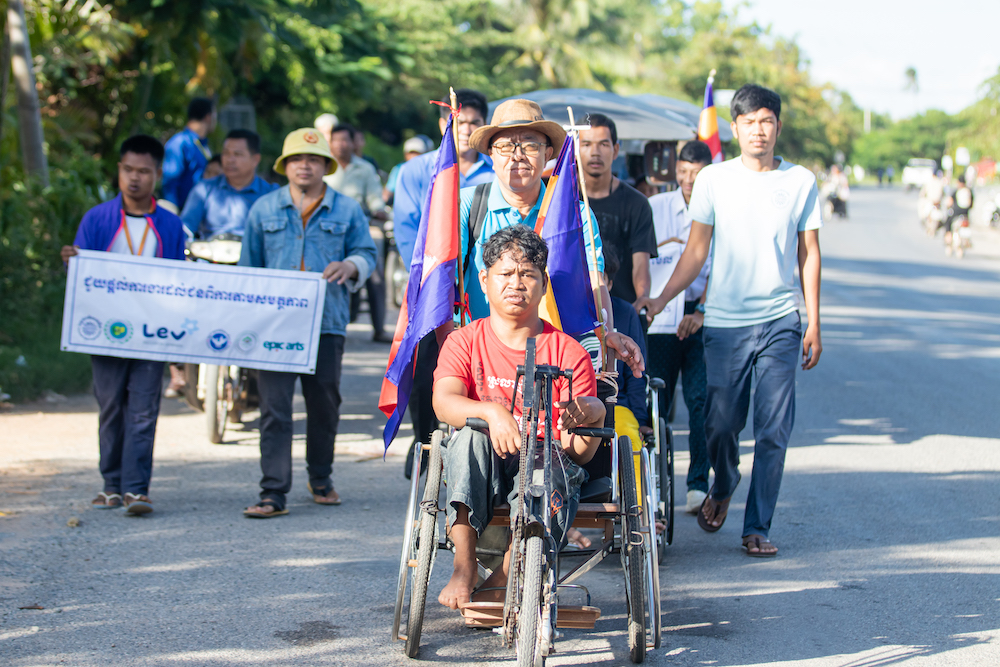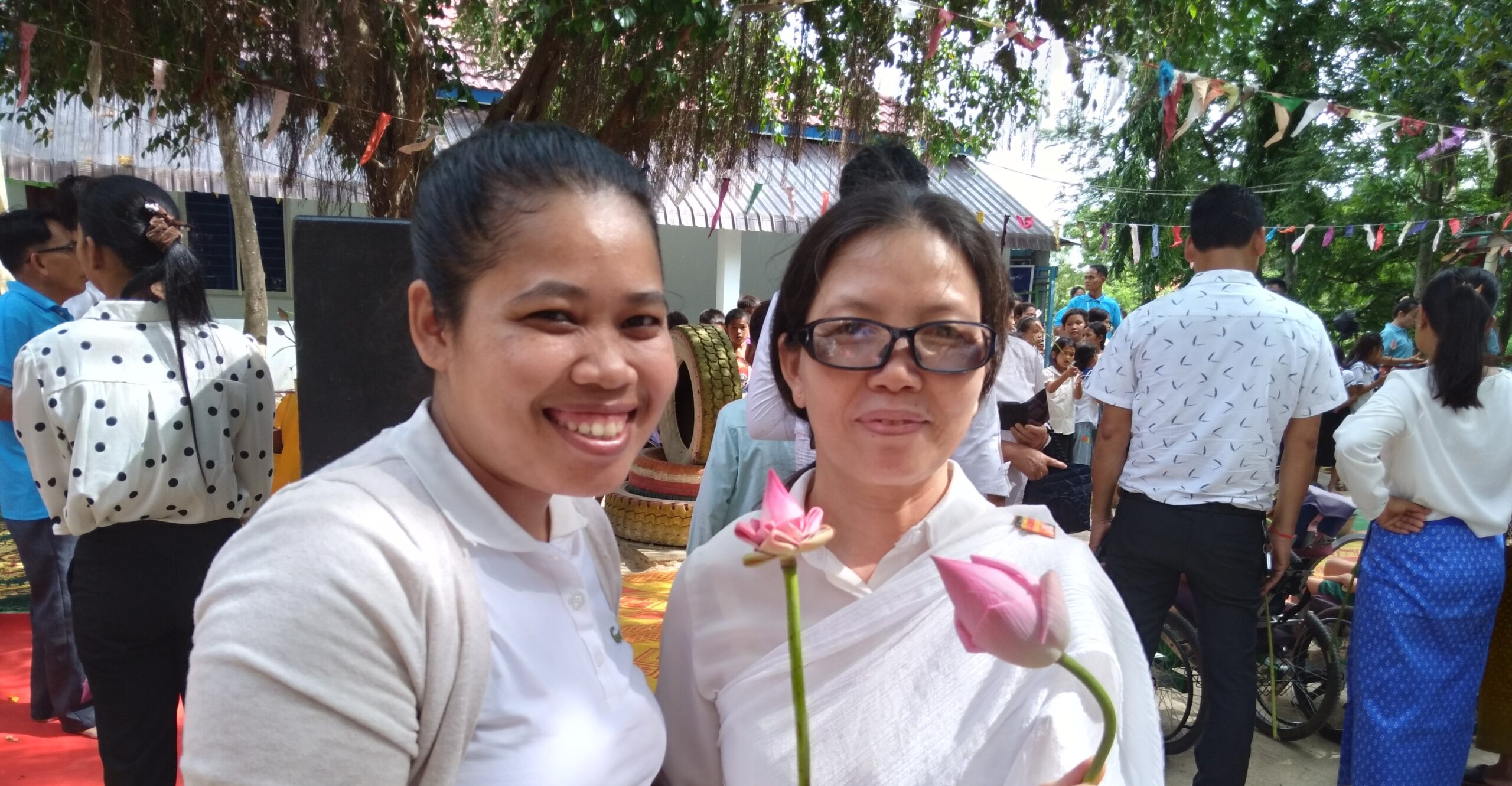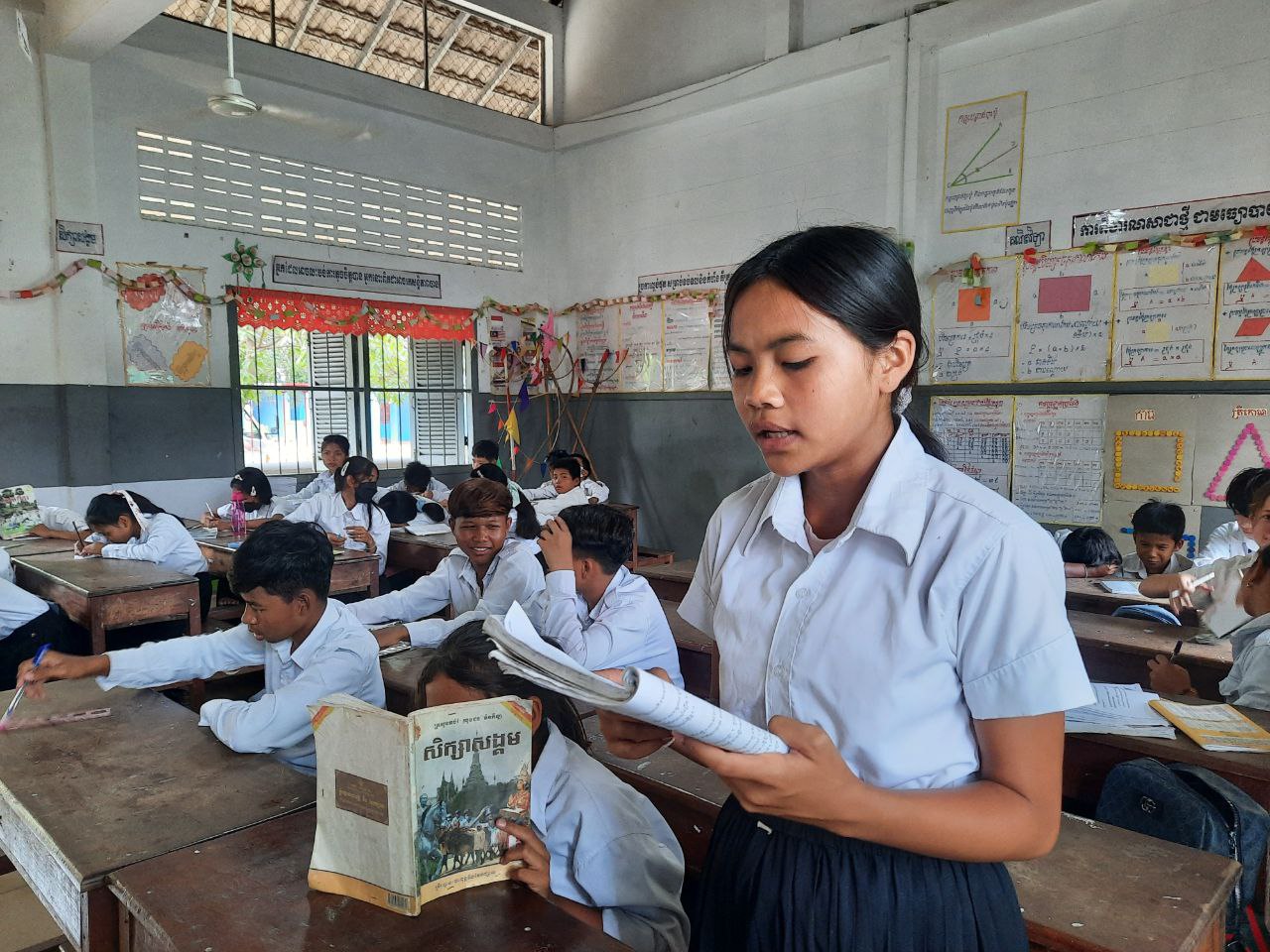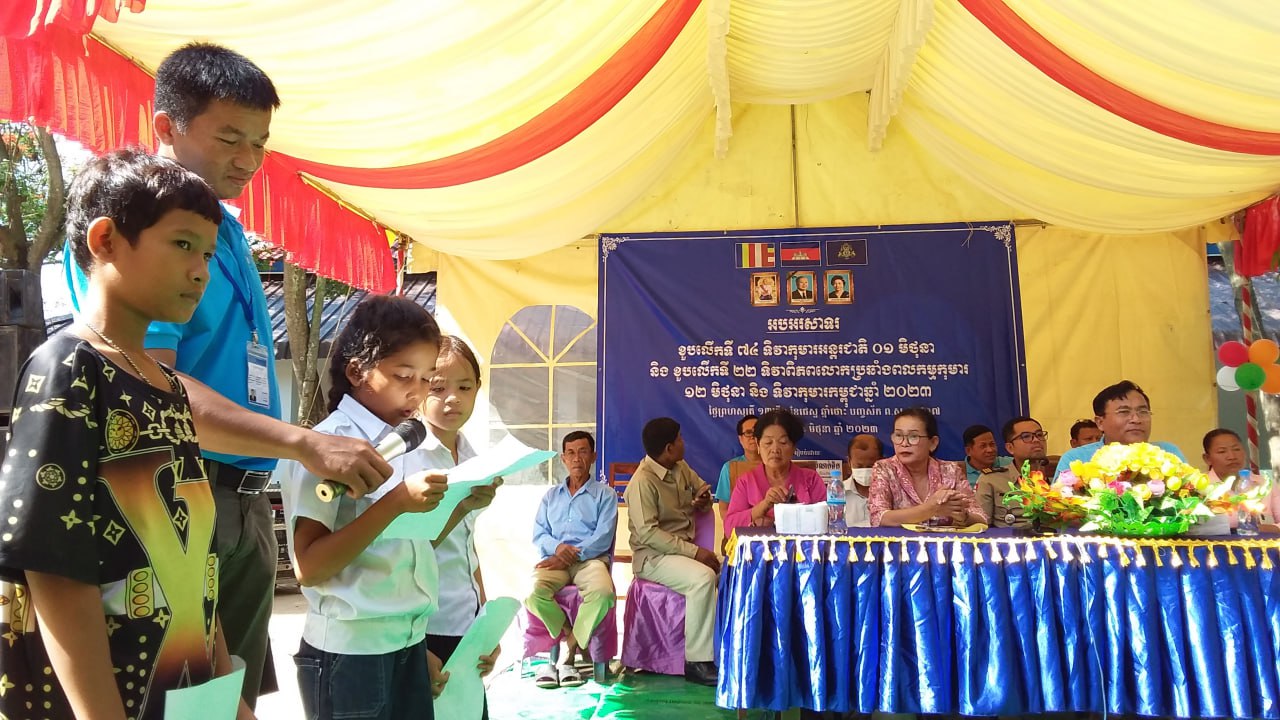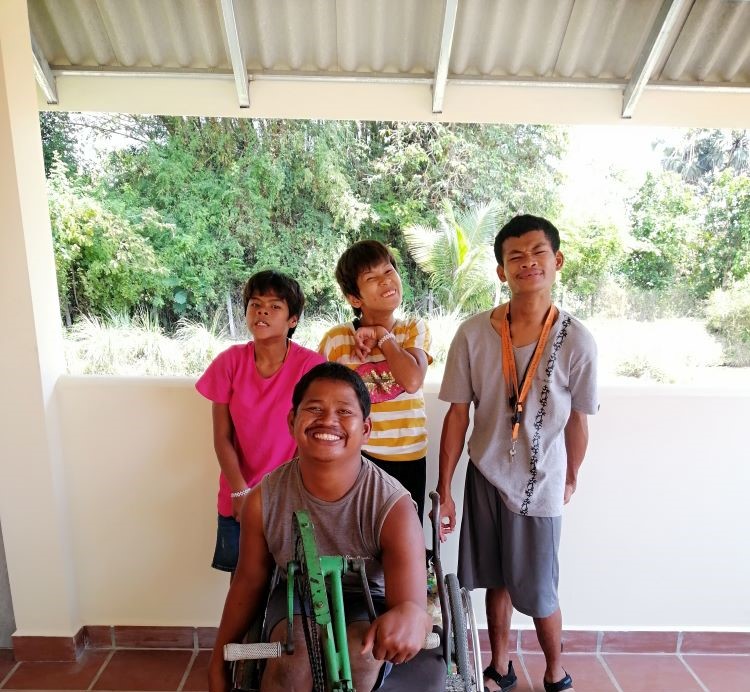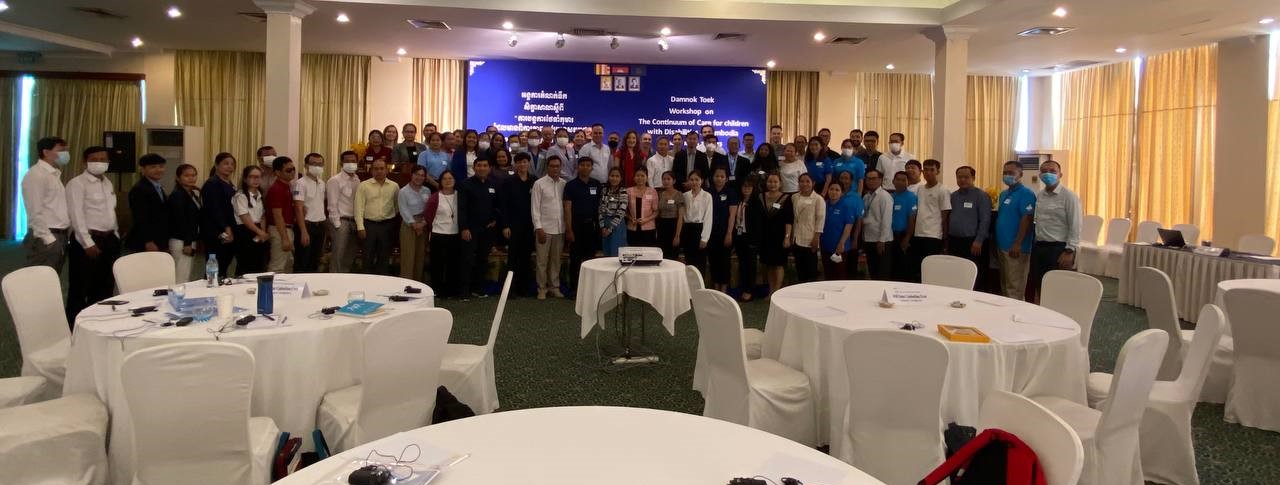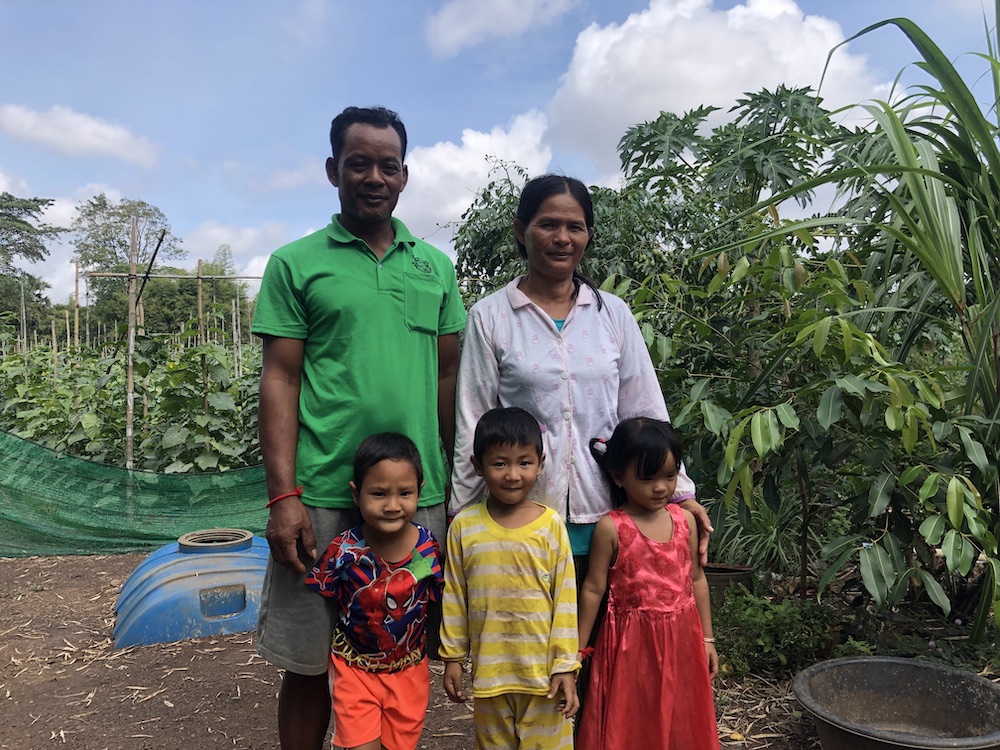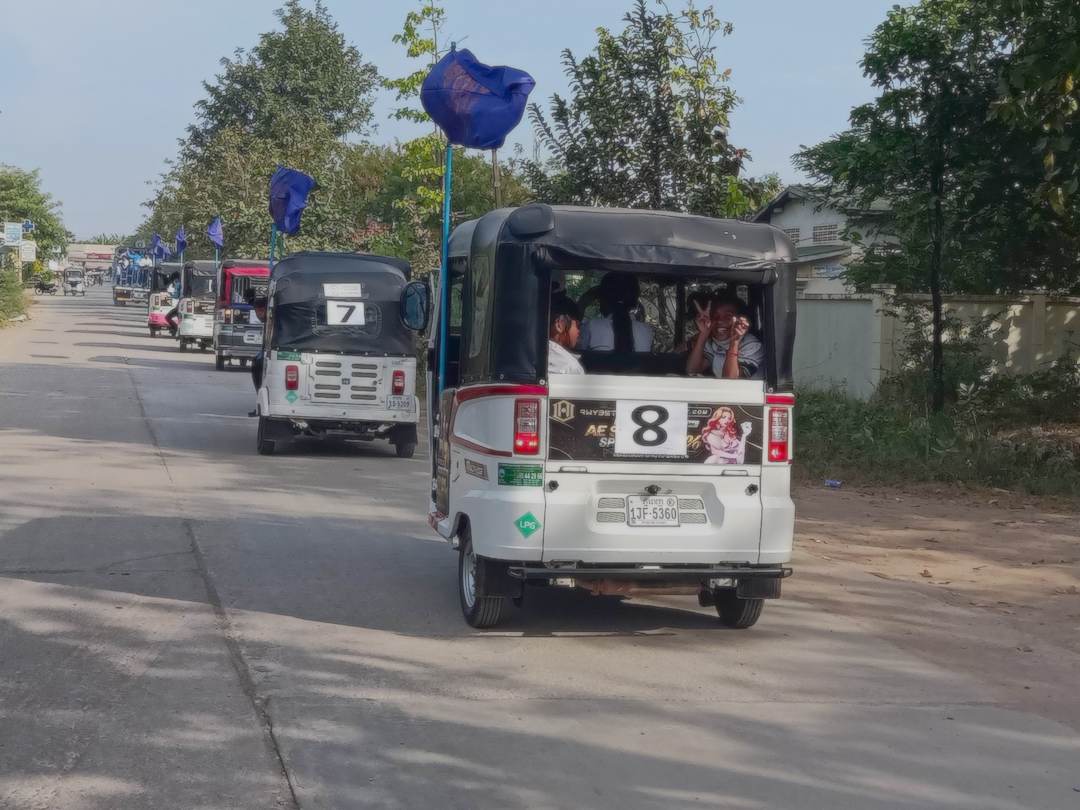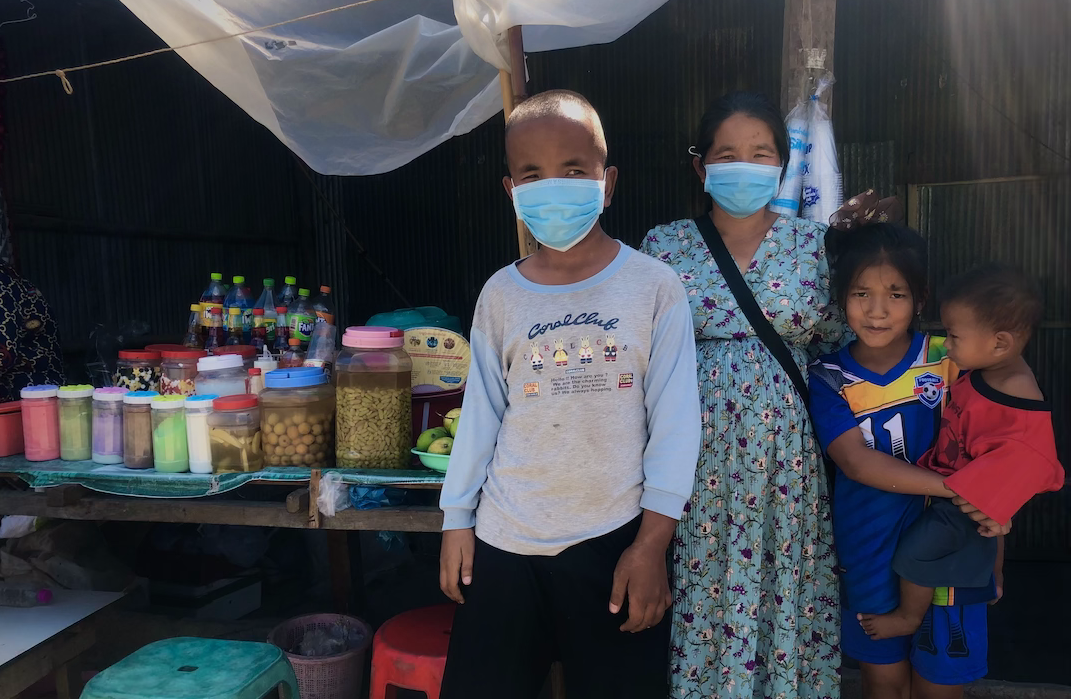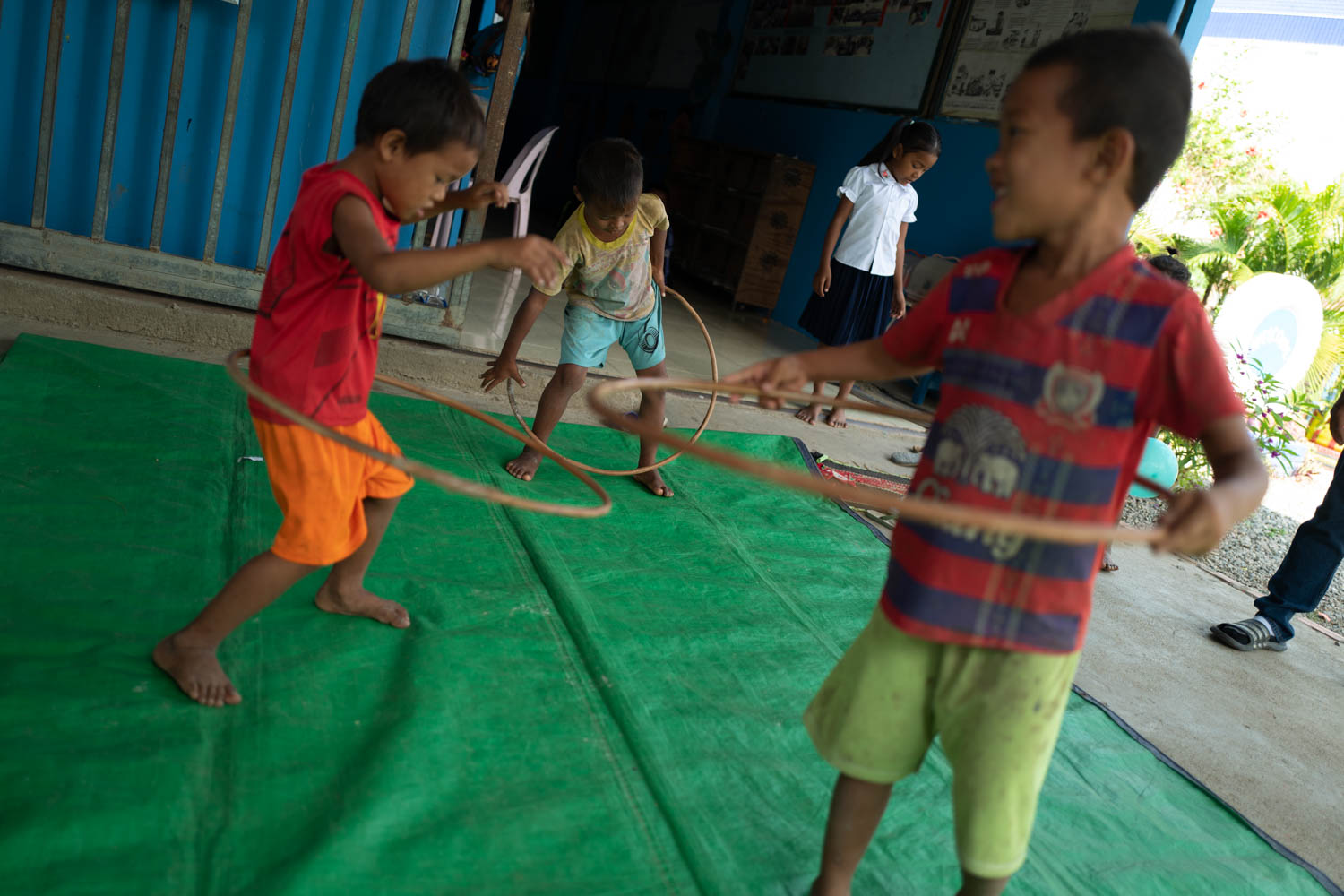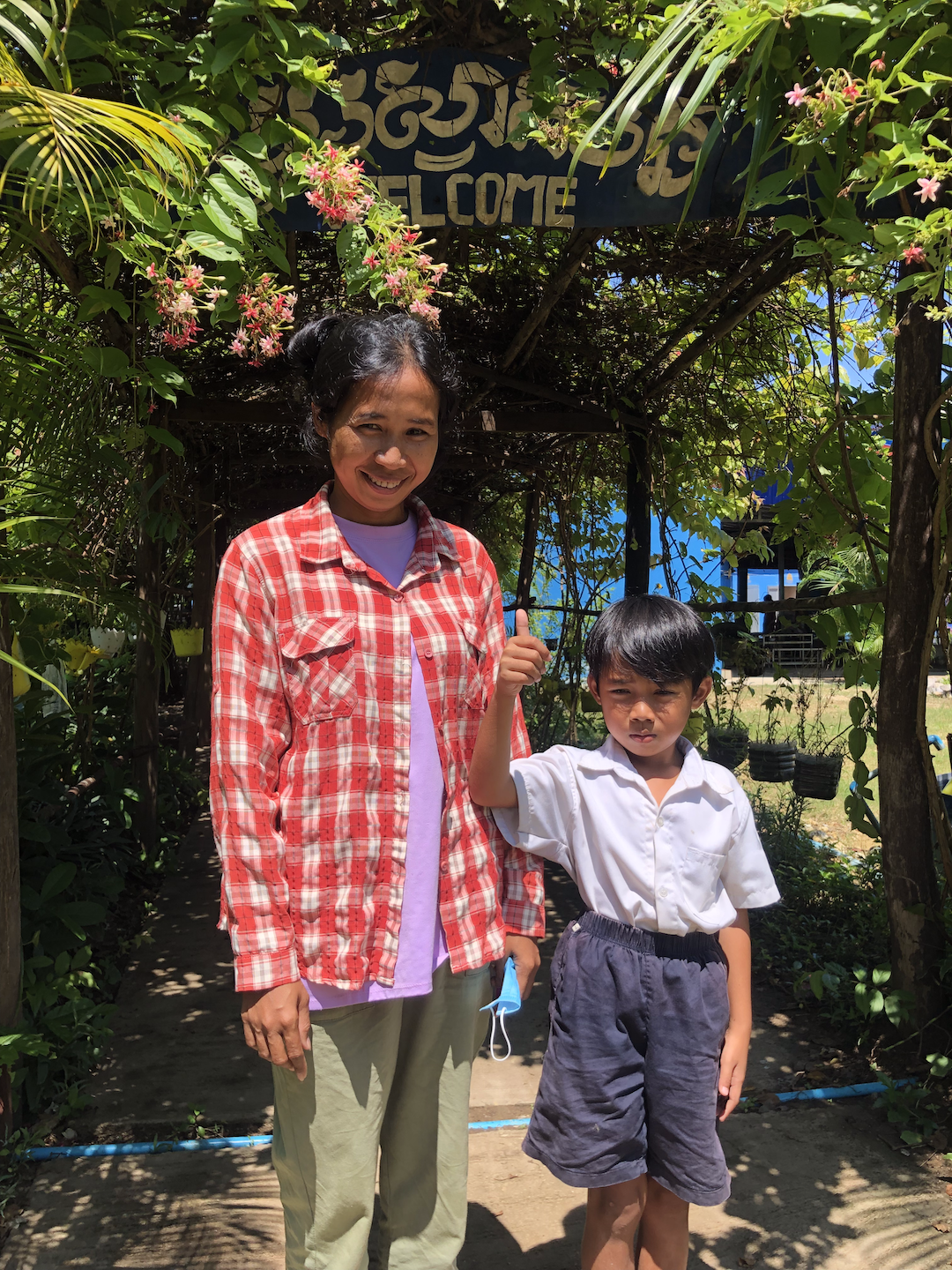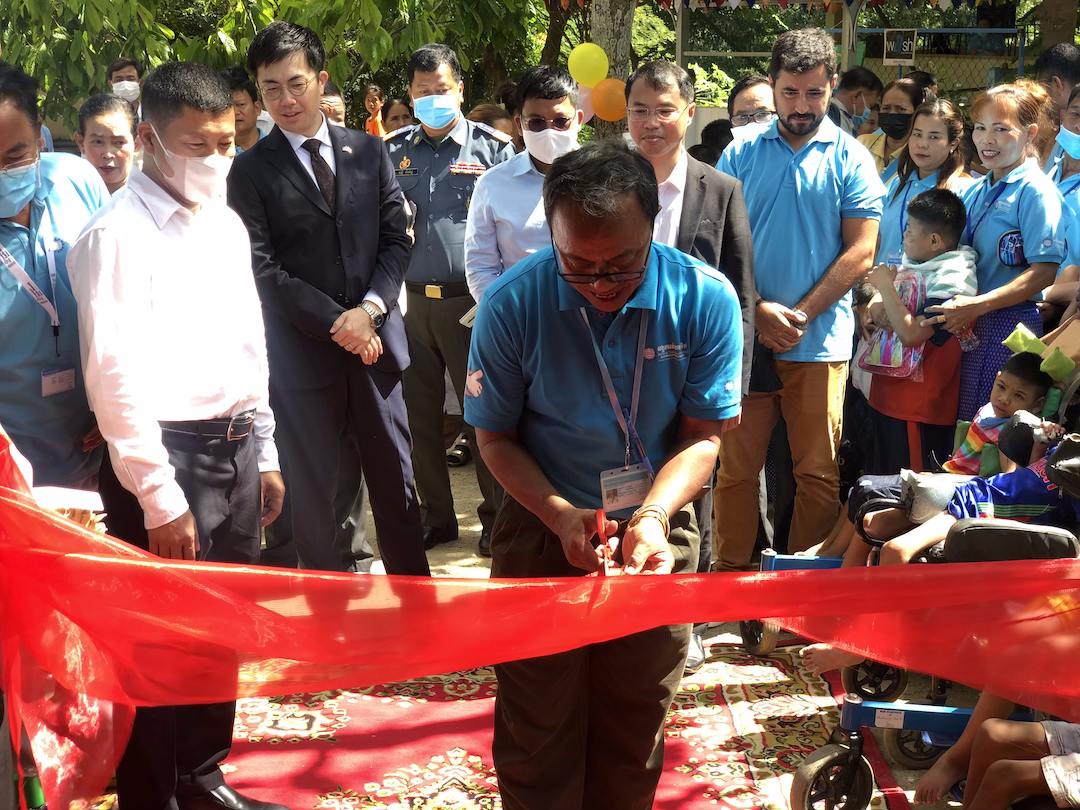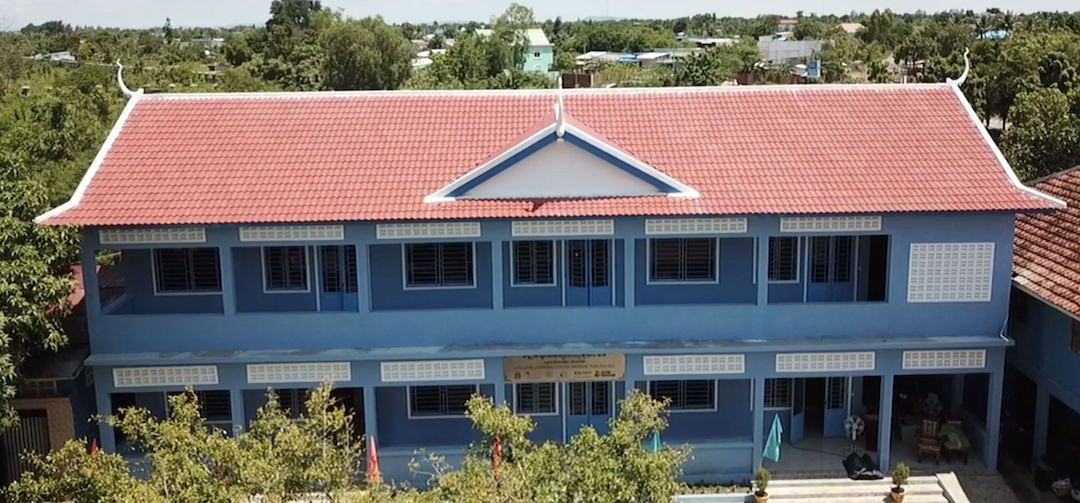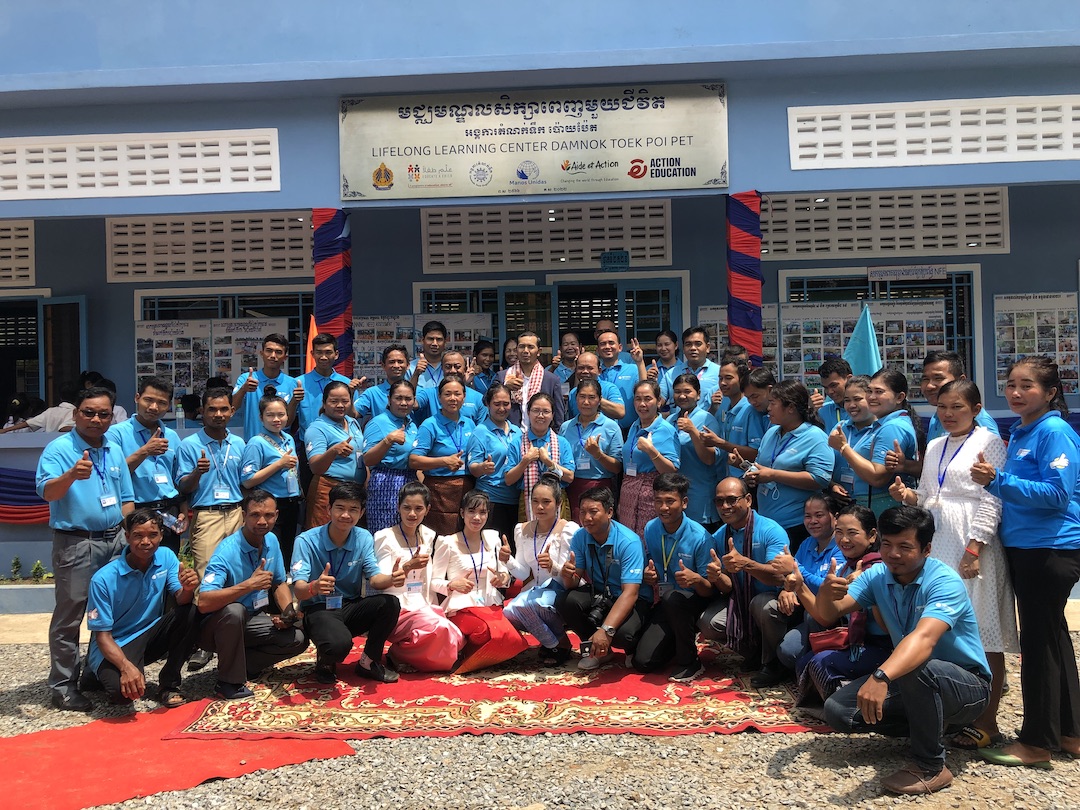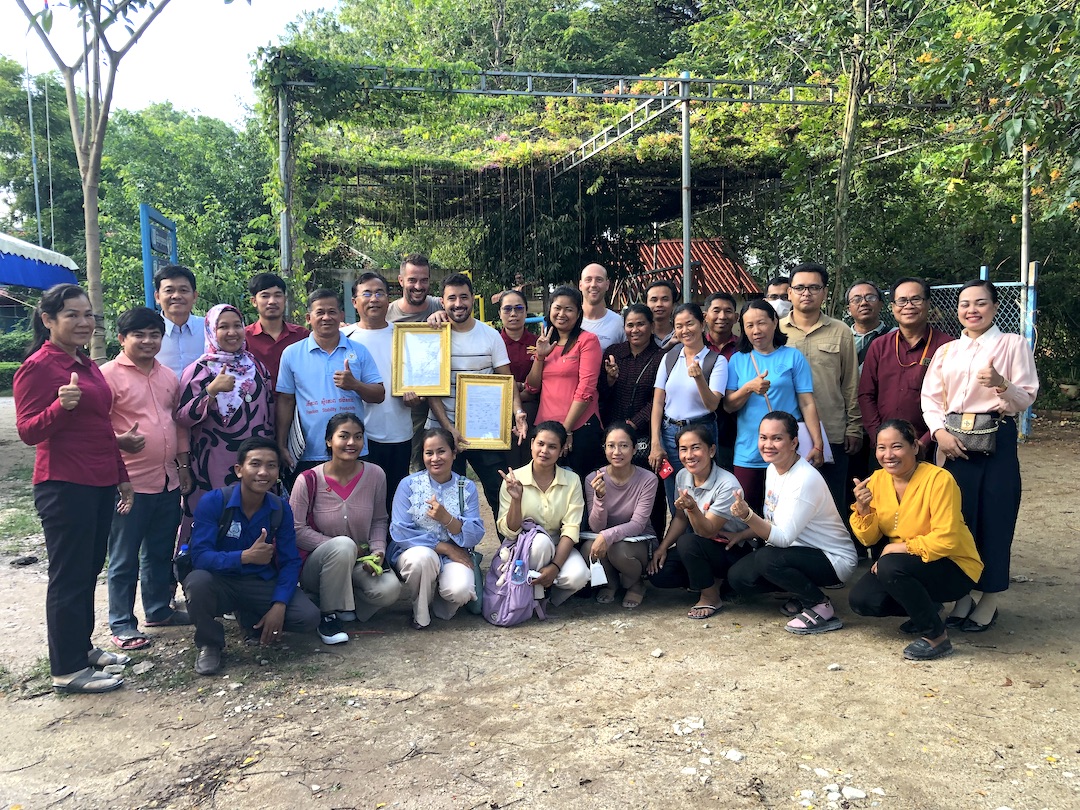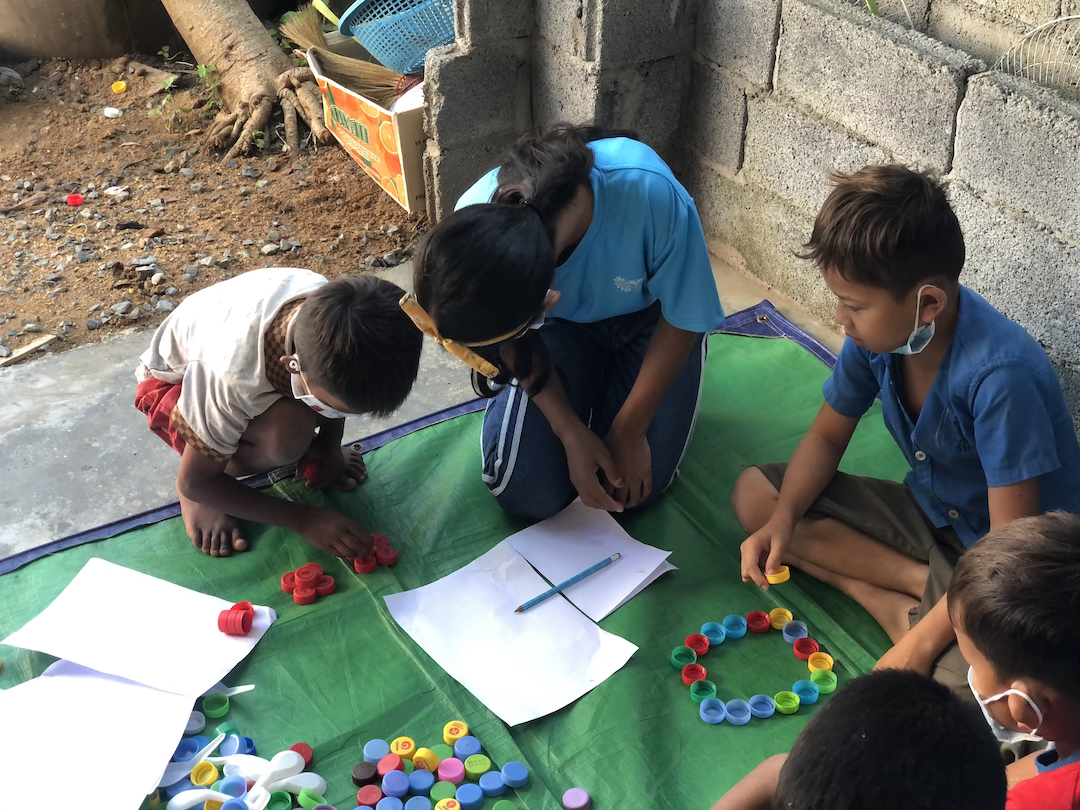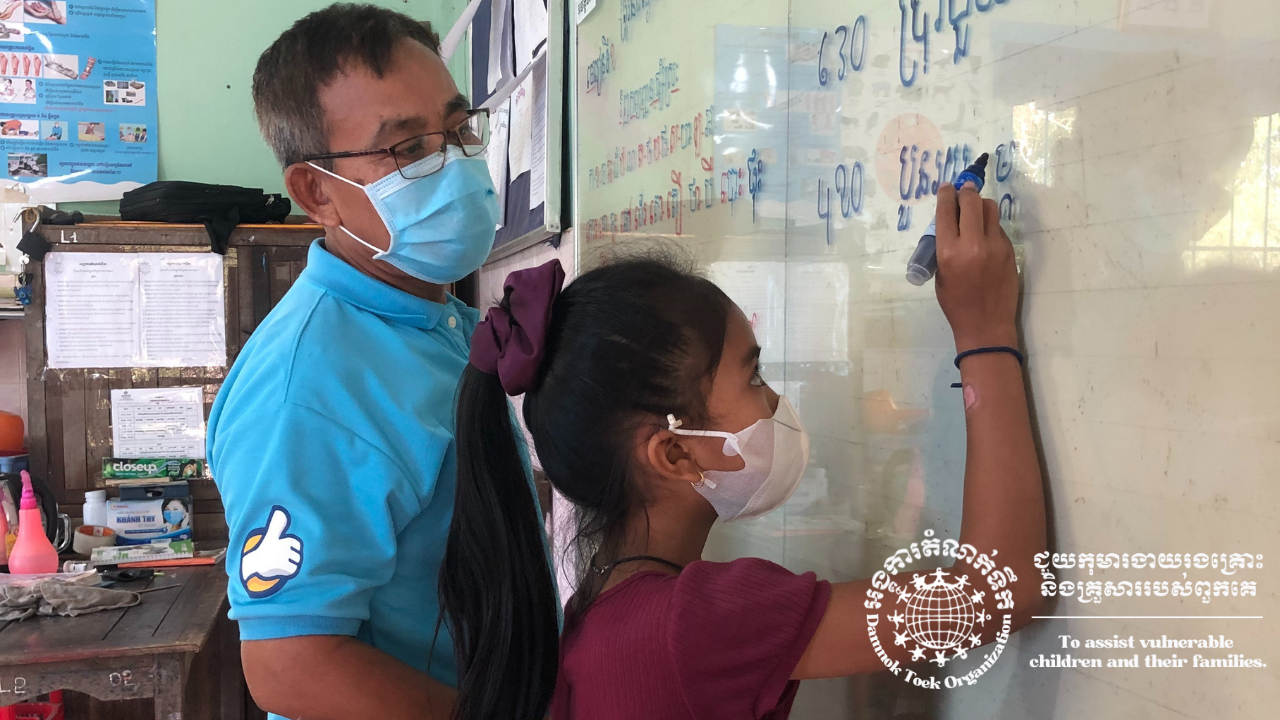Touy Ban sits in front of artwork done by beneficiaries of the Damnok Toek Drop-In Centre (DIC). He is young and jovial, which is not what one would expect from the leader of such an intense project. The DIC was established by DT in 1999 with the support of UNICEF and the Ministry of Social Affairs to provide necessary services to vulnerable children in Poipet. Based in one of the poorest areas of the city, the DIC is a refuge for many street-involved children, victims of domestic violence, young drug users, or those looking for a respite from the impoverished conditions in which they live.
The average age of the children who visit the DIC is 4-5 years old. Most of the children are street-involved or are victims of domestic violence or unsafe migration. They often come unaccompanied having been recruited by social workers. Sometimes they arrive in groups as word spreads among children in the community if the DIC has a bed open for the night or has activities going on during the day. For Touy, this spread of information is crucial because word-of-mouth recommendations and outreach are the most effective methods DT utilizes to reach and help beneficiaries.

Outreach done through the DIC is often the first point of contact DT staff have with at-risk youth in the area. Outreach teams go into the community 4 times a day, 7 days a week. It is this rigorous schedule that makes the DIC both a unique project in Poipet and also a difficult one to staff.
“The first outreach team goes out at 7.30 am; the second, from 1-4 pm; the third, from 4-5 pm; and the fourth, from 7-8.45 pm. This last outreach mission is especially important as it is the last opportunity of the day for social workers to reach and speak with children,” Touy explains. Although the gates of the DIC officially close at 9 pm, there is always a social worker and an educator on duty in case children arrive during the night needing assistance.

In addition, the DIC staff are responsible for responding to calls made to the ChildSafe hotline: a 24-hr/day hotline available for individuals to report situations of children living in or being exposed to unsafe conditions (domestic violence, working/living on the street, using drugs, etc.). “The nature of the work at the DIC requires a different schedule. So it is not just Monday-Friday like the other projects because we also have to work at night time and on the weekends.”
Public schools and other organisations are closed on the weekends. These days are especially busy at the DIC. “During the week, we see maybe around 70 children at the DIC. During the weekend, that number increases to about 90,” Touy explains. And these are just children who are coming to the actual center. Through outreach, Touy estimates DT social workers reach about 100 children per day.
Covid-19 Presents New Challenges
The assistance they require varies and the number of children in need of assistance increased throughout Covid. In June 2020, World Vision interviewed 220 families throughout the country for a rapid assessment of the societal impacts of Covid-19 in Cambodia. They found that 86% of families had experienced reduced or lost income and 36% of children interviewed reported an increase in child labour within their towns.
Touy Ban and his team have witnessed this trend firsthand. They noticed a significant change in the type of children seeking services from the DIC in the wake of the Covid pandemic. “Before Covid, it was mostly [children suffering from] domestic violence and drug addiction,” Touy says. These days, more children are entering the workforce to help support their families who are more impoverished than before. “Social workers are even noticing children in the NFE (Non-Formal Education) program who are on the streets at nighttime earning money to help their families.”
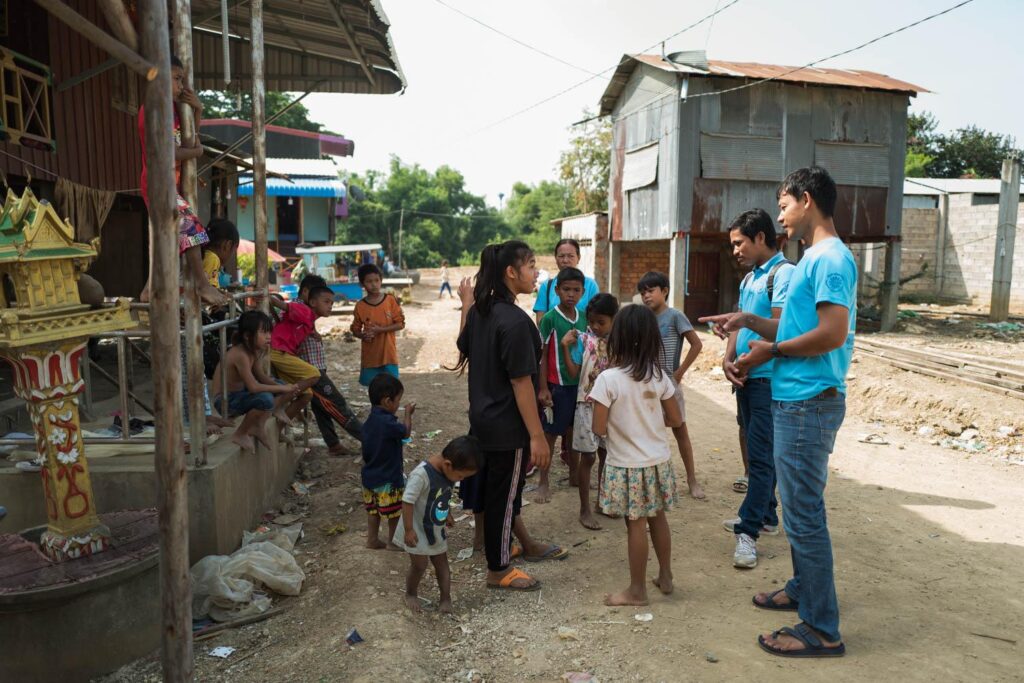
Non-Formal Education is the most popular program to which social workers refer the children they encounter during Outreach missions. NFE provides Grade 1-6 education to vulnerable children who cannot afford or access public schools. Families who have children attending NFE classes receive additional support in the form of foodstuffs, while the students themselves receive learning materials, uniforms, school lunches, and transportation to and from the school.
Touy explains the importance of the referral process, particularly for early intervention. “Many of the children who started by coming to the DIC, went on to NFE, and many continued through secondary education and even university and now have good-paying jobs.” In addition, many of the youth in DT’s Peer Educator Program were themselves child beneficiaries of services provided through the DIC.
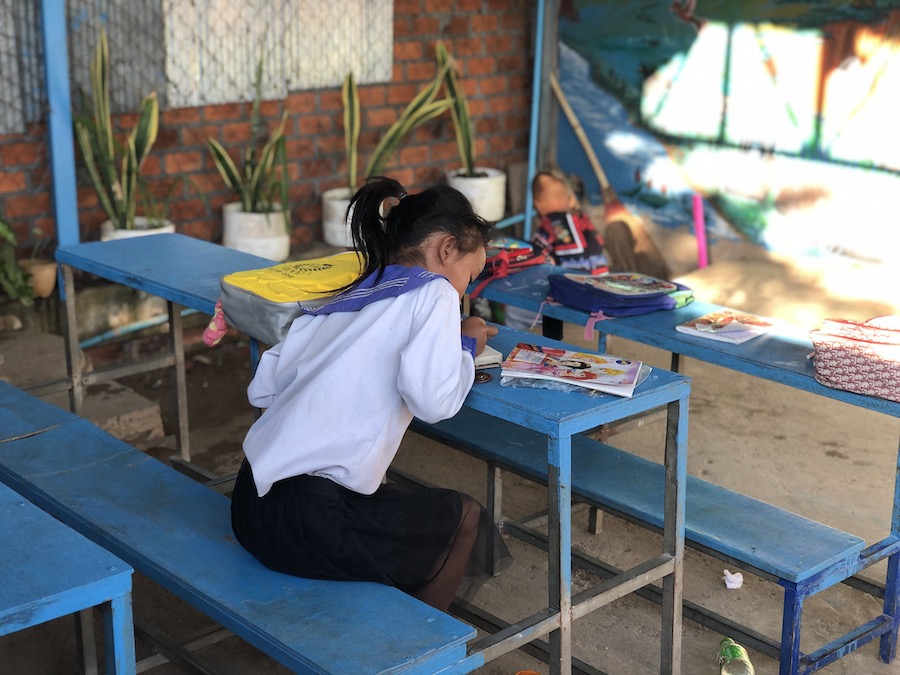
While children are always the target recipients of Damnok Toek assistance, the team recognises that in order to break the cycle of poverty, parents also need support. Touy recalls one case in which a child was referred to the NFE program and his father to Damnok Toek’s Future’s Office for employment assistance. Touy works closely with local government agencies, other NGOs, and the business sector to facilitate this inclusive approach.
The DIC also conducts outreach to new mothers to provide education about breastfeeding and formula mix for newborns. Touy has an additional soft spot in his heart for new mothers and this is one of many types of support he would love to expand upon.
DIC Plans To Expand Services to Vulnerable Children
“There are a few services we do not offer that I would like to. One would be prenatal care and support for mothers who are very young and do not know how to care for their babies. An improved HIV [support and awareness] program, an increased medical capacity to treat serious conditions and perform operations, a counselling room for children, even just having a proper playground for the children who visit the DIC to use… are all improvements I would love to make to the program.”
In the meantime, he says that staff capacity continues to be the biggest obstacle to fulfilling the needs of the community. “Damnok Toek is a great working environment but unfortunately, many people gain experience here and then use that to get a job at a bigger organisation that can offer more benefits.”
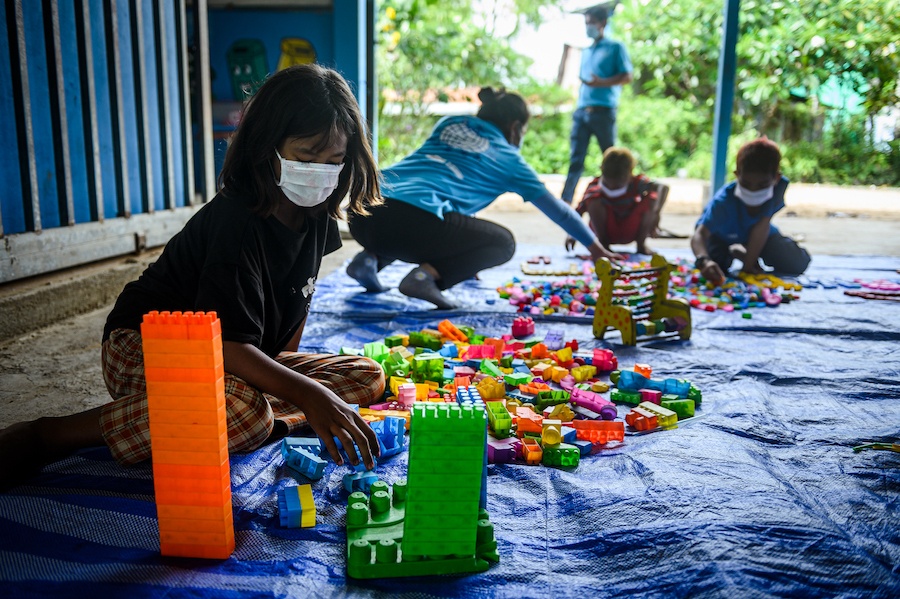
The biggest challenge for Touy is staff training. Between the complexities of the different cases, the abnormal working hours, and the harsh conditions faced by beneficiaries, finding and keeping qualified staff is difficult. However, he says the reaction from the community continues to inspire him and his staff. “Members of the community always call our staff PaMak (mother and father) and this is really the keyword that inspires our team when they hear, ‘Oh PaMak come to help our community!’, it really makes our team feel very happy.”
The DIC is one of the most important projects of Damnok Toek and also one of the most challenging. Fortunately, Touy and his passionate staff work daily to provide daily services for vulnerable children and their families. However, as the environment around Poipet changes and the community works to recover from Covid, Touy and his team worry that without external support, they will struggle to meet the increasing needs of the people they serve.
